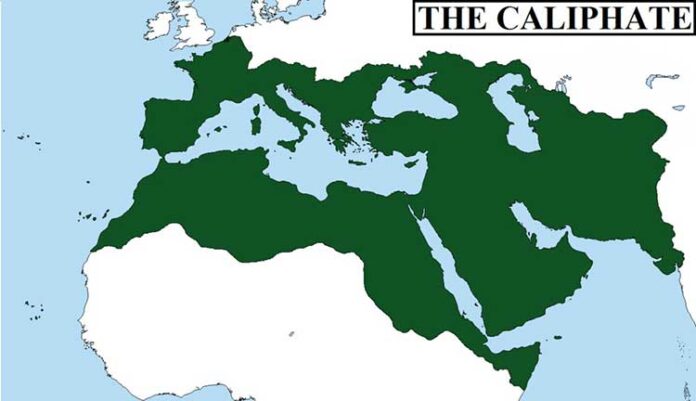Faisal Gazi’s Guardian article The first Muslim Secularist introduced up Ali Abd al-Raziq, and his controversial 1925 e-book, Islam and the Foundations of Authorities. It’s fascinating and really informative to know in these instances how a lot he was against for merely suggesting an alternate historical past and attempting to arrange a debate in regards to the origins and legitimacy of the Caliphate idea in Islam in 1924-25, a watershed second for Muslims. He was stripped of his credentials after an outcry in Egypt and the ulema at Al-Azhar, Cairo accused him of propagating seven impermissible doctrines.
These have been:
1) His interpretation of sharia as purely a religious regulation;
2) His description of Islamic warfare efforts as monarchical selections (al-mulk) moderately than transmission of God’s phrase (al-dawa) selections;
3) His view that the early system of presidency established by the First Muslim Believers was disorganized and imprecise;
4) His personal perception that the unique mission was sharia to be other than justice and administration (al-tanfid);
5)He had doubts concerning the consensus of the Companions (Suhaba) in regards to the necessity of building a Caliphate.
6) He doubted the judicial workplace of the sharia
7) He asserts that the federal government of the caliphs was not non secular.
In Al-Raziq’s phrases in keeping with the Guardian article, his primary thesis of the e-book was that the Caliphate had no foundation within the sharia; that the Prophet by no means based a authorities; that those that did after his demise believed they have been making a secular worldly govt; that God has left Muslims free to ascertain no matter system of presidency they judged greatest.
James Broucek, in his 2012 dissertation on the Iowa State College, The Controversy of Shahykh Ali Abd Al-Raziq, defended al-Raziq’s e-book as mainly a refutation of Islamism. Broucek highlighted how Al-Raziq reiterates that Muslims can not use their faith to justify public insurance policies or explicit techniques of presidency. Broucek additionally criticizes the e-book for not giving the Muslims a imaginative and prescient or an alternate to sharia governance. There isn’t a argument within the e-book about the advantages of a secular state or why secular regimes higher allow Muslims to stay in submission to God.
In all equity, there are Muslim students who defend Al-Raziq’s e-book, and protest his ouster from Al-Azhar by the ulema in 1925. Majd Fakhry, Souad T. Ali, Abdullah Ahmed An-Naim go far sufficient to time period his efforts as departing from custom, which was the fundamental accusation of the ulema in 1925. A foolish accusation since custom is invented in addition to inherited. The Prophet’s life confirmed this with the custom of Abraham residing in submission to God moderately than as a Jew or Christian.
Non-Western students comparable to Noah Feldman, Fred Donner, James Broucek, and Eric Hobsbawm with Terence Rangers additionally give the explanation why Al-Raziq’s e-book was essential within the aftermath of Mustafa Kemal’s abolishing of the Ottoman Caliphate in 1924. All of them time period Raziq’s e-book as a revisionism of the Prophet’s mission, and that even the First Caliph by no means believed his authorities was a part of the revealed sharia.
That’s precisely what Raziq builds on in his e-book. The details are firstly, Islam didn’t decide a particular regime nor did it impose on the Muslims a specific system in keeping with the necessities of which they should be ruled; moderately it has allowed us absolute freedom to organise the state in accordance with the mental, social and financial circumstances by which we’re discovered, making an allowance for our social improvement and the necessities of the instances.
Raziq constructed his argument on these specifics
– that the 2 predominant sources of Islamic regulation (sharia), the Quran and the Sunnah (traditions of the Prophet), neither demand nor reject the rule of a Caliph or imam.
– that there is no such thing as a actual ijma (consensus) of the need of the Caliphate.
– that have reveals that the Caliphate was a collection of disasters for the Muslim neighborhood, and there’s no single rational argument for the re-establishment of the Caliphate.
Now understandably, there was a lot opposition from the ulema at Al-Azhar, Cairo and subsequently elsewhere, contemplating the millennium state of affairs of issues and the way a lot ISIS/Daesh sort regimes wish to set up a Caliphate. Additionally it is reflective of the resistance that any reform and even the mere suggestion of a debate on this idea will generate if it have been to be reintroduced. However in Raziq’s personal phrases, “If the Muslims don’t wish to be annihilated, they should change with the instances and probably revise their definitions, understanding, and interpretation of the Caliphate and its origins.”
We owe it to the inheritors of our religion, who given a alternative in a secular setting wish to proceed with their religion and derive religious satisfaction from it. We owe it to them to ask for an alternate to the tribal politics which have so plagued our historical past and proceed to in our current.



